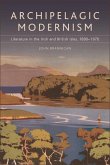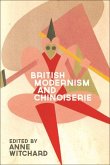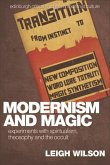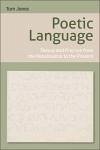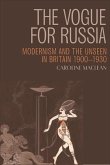This collection reconsiders Modernism in the light of the humanities' "e;affective turn"e;This book addresses an under-researched area of modernist studies, reconsidering modernist attitudes towards feeling in the light of the humanities' turn to affect. The eleven original chapters and chapter-length introduction consider the affective dimensions of a range of forms and media - including literature, architecture, philosophy, dance, visual art, and design - tracing modernism from its origins in the nineteenth century to its afterlives in the postwar period. Modernism and Affect engages with contemporary theories of affect but also turns to a surprisingly wide range of theoretical models - including psychoanalysis, phenomenology, critical theory and poststructuralism - as it emphasises the complexities of modernist affect and emotion. Key Features* Presents 11 original essays by international scholars exploring the relationships between modernism and affect* Offers a multi- and interdisciplinary approach to modernist studies* Challenges the assumption that modernism is marked by a lack of interest in the emotions* Outlines influential theories of affect for scholars and students of modernist studiesJulie Taylor is lecturer in American Studies/Literature at the University of Northumbria at Newcastle, UK. She is the author of Djuna Barnes and Affective Modernism (2012) and has recent and forthcoming publications on American modernism in the journals Modern Fiction Studies, Modernism/modernity, and Twentieth Century Literature.
Dieser Download kann aus rechtlichen Gründen nur mit Rechnungsadresse in A, B, BG, CY, CZ, D, DK, EW, E, FIN, F, GR, HR, H, IRL, I, LT, L, LR, M, NL, PL, P, R, S, SLO, SK ausgeliefert werden.



